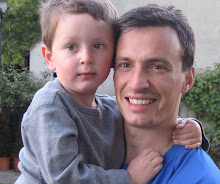Next month will be the five-year anniversary since my
brilliant brother Daniel died by suicide.
Dan’s life was cut short before he was 40 years old leaving behind his
loving wife and two beautiful young sons.
All preventable deaths are devastating. But suicide can shatter families
and friends like nothing else I’ve seen.
I have gone onto understand that suicide is the biggest
killer for all ages from 5-35 years old and the biggest killer of men under 50.
It is without doubt the single biggest
public health challenge on preventable deaths of our times. As a society,
we need to bring together our brightest minds, our financial assets and the
political will to see a sustained and significant reduction in deaths from
suicide.
However, this blog is
both about the signs of progress we are seeing and also a simple message
about what you can do today, tomorrow and every day to help reduce the risk of
suicide for you and your friends and family.
Here for some signs of hope;
Firstly, the latest statistics
on suicide indicate that overall number of suicides in the UK and the
Republic of Ireland are falling (6,213 people in 2017 vs 6639 in 2015). For men
(who are still three times more likely to die by suicide), the suicide rate is
at its lowest for 30 years. Female suicide rate is rising in some parts of the
UK but falling in Scotland and Ireland. Rates
since 1985 have been falling and we need to accelerate this trend.
Secondly, we were pleased last month that the Scottish
Government heeded our call to establish a special body to look at tackling
suicide and providing support to bereaved families (who are some of the most at
risk themselves of suicide). Scotland is taking a lead and we will continue to
push for England and Wales to do the same.
Lastly, there has been a little heralded but significant
change in the law on suicide. The way
coroners decide on the cause of death has changed. We had for a long time been
concerned about an under-reporting of the true scale of deaths by suicide
because of the way coroners were giving verdicts of accidental deaths when some
may well in fact have been suicide.
However, in a land
mark high court ruling just last month, coronial law was changed so that
now coroners can give a verdict of suicide ‘on the balance of probabilities’
instead of the previous higher evidence threshold of ‘beyond reasonable doubt’.
Although this ruling is subject to an appeal, the law is a important step
forward in the battle to see the true scale of the problem and marshal adequate
resources to address it.
In previous blogs
I have set out the evidence on the key societal steps needed to reduce
suicide. But there is something simple
and radical we can all do to help reduce suicides. Our
own research into stress showed that 32% of people had experienced suicidal
thoughts at some point. And as Horizon's brilliant film
on suicide showed, the evidence is building that simply asking our friends and
family if they have had suicidal thoughts over the past few weeks is the single
most effective thing we can do. Despite fears that raising the subject of
suicide could put ideas in people’s head, the evidence points to the reverse;
it lowers the risk. For people experiencing isolation, knowing that someone cares enough to ask can be the difference between
life and death.
I have tried this. When I meet with friends, I have been
asking them ‘Have you experienced suicidal thoughts’? It has opened up a deeper
conversation and communicated that I really do care. If people do tell me they are struggling, I
try to follow our own advice to assure them that this is a common feeling and
give hope that with time, things change. I am also ready to encourage them to
seek expert help if they aren’t coping.
If asking about
suicidal thoughts became a normal part of our cultural exchanges and practice
(like putting on a seatbelt) I think hundreds if not thousands of lives would
be saved.
You can be at the cultural cutting edge of suicide
prevention by simply asking a compassionate question. Let’s make the difference
together!
ENDS



